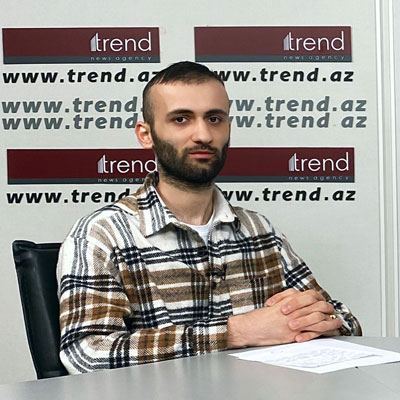BAKU, Azerbaijan, June 12. Japanese technologies may be applied for decarbonization in Azerbaijan, Trend reports.
Under the MoU, SOCAR and JBIC agreed to strengthen their cooperation through the exchange of information on the introduction of low-carbonization technologies, including but not limited to CCS (Carbon dioxide Capture and Storage) and CCUS (Carbon dioxide Capture, Utilization and Storage), and on projects related to hydrogen, ammonia.
JBIC aims to accelerate the structuring of projects that will contribute toward promoting collaboration between SOCAR and Japanese companies and creating a decarbonized society. In this regard, technologies as CCS, CCUS, hydrogen and ammonia might be one of areas in which Japanese companies’ expertise and/or technologies can be introduced and contribute to a decarbonization in Azerbaijan
New projects are being considered for the Satti drilling rig. Projects are being evaluated to engage this rig. One of them is the drilling of an exploration well at Umid-Babek block, but a final decision has not been made at the moment. Projects in Turkmenistan are also being considered in collaboration with KazMunaiGas. The state oil company SOCAR, has plans for drilling production and exploration wells.
"Once a decision is made, we will participate in the implementation of these projects," the company said.
The Dede Gorgud drilling rig, operated by Caspian Drilling Company Ltd, may continue working at the Karabakh field if the partners involved in the field’s development make a decision on drilling.
Dede Gorgud completed its work in Kazakhstan on the Zhenis block for the joint venture of LUKOIL and KazMunaiGas. If the partners make a decision, this drilling rig can continue its operations at the Karabakh field. All wells at the field have been drilled using the Dede Gorgud rig.
Also, this week, the EU officials noted that Europe is interested in continuing and strengthening cooperation with Azerbaijan, especially in the fields of energy, reforms, trade and investment, adding that Azerbaijan plays a key role in the diversification of energy sources and transport routes.
Connectivity and energy are key elements of the EU's Economic and Investment Plan, which aims to attract public and private investments in Azerbaijan in the amount of up to 2 billion euros.
Azerbaijan plays a key role in ensuring connectivity, developing the Middle Corridor connecting Europe with Central Asia and countries beyond its borders, as well as in diversifying energy sources and transport routes, in particular through the Southern Gas Corridor. Negotiations on a new comprehensive agreement between the EU and Azerbaijan are continuing, and the EU is striving to ensure their speedy completion.
Meanwhile, the Trans Adriatic Pipeline (TAP) consortium reported the launch of a new market test in July 2023, which will begin with a non-binding stage. The initial long-term TAP capacities were allocated to shippers on the basis of long-term agreements signed for 25 years to support investments in the project.
"We could further support the energy security of Europe, as TAP's capacity can be expanded to about 20 billion cubic meters per year. Moreover, TAP is close to full capacity utilization. More than 4.5 billion cubic meters of gas were transported through the TAP in the first five months of 2023. Current long-term TAP capacity (approximately 10 billion cubic meters per year). They have already been distributed among gas suppliers from the Shah Deniz field in accordance with gas transportation agreements signed in 2013," the consortium said.
TAP has allocated approximately 5 percent of the initial capacity for short-term bookings. This is in addition to the already booked capacities. The volume of traffic via TAP will depend on market demand in 2023. TAP also plans to start construction work to increase supplies. At this stage, installation of one additional compressor unit to the existing compressor station in Kipoi (Greece) and modernization of facilities are required.
At an early stage, construction work in Kipoi will begin in the second half of 2023. Additional pipes will not be required in any scenario of infrastructure expansion. The design of TAP and the Southern Gas Corridor as a whole makes it possible to double the capacity to 20 billion cubic meters per year due to additional compressor units and stations. Additional compressor stations are not required for the first stage of expansion (by 1.2 billion cubic meters of gas per year).
In addition, this week, Kazakhstan has been discussing joint investments in gas production with the State Oil Company of Azerbaijan (SOCAR). The national company of Kazakhstan QazaqQaz and SOCAR have already held a number of meetings and negotiations in the gas industry, especially on investing in gas exploration and production, as well as on the construction of new LNG plants.
The Azerbaijani side has already expressed interest in specific projects of the gas industry of Kazakhstan, and the parties will continue to explore the possibilities of joint cooperation.
Meanwhile, Masdar company wants to support Azerbaijan in green hydrogen production, and its further export to the European market. This initiative is currently under study and analysis.
The Black Sea Electric Power Project will unlock the potential of renewable energy production in Azerbaijan. The EU encourages member states and partners supporting this initiative to lay an electric cable along the bottom of the Black Sea, which will connect the South Caucasus region and the European Union.
This project will increase the energy security of both sides and ensure the trade of electricity from renewable sources in the European market, as well as help unlock the potential of the production of solar and wind energy in Azerbaijan.
Moreover, the volume of exports in the oil and gas sector of Azerbaijan increased by 98.1 percent to $37.9 billion in 2022. A total of $20.8 billion accounted for crude oil, $16.4 billion for natural gas and $0.7 billion for petroleum products. In general, the export of Azerbaijani products increased by 88.4 percent to $40.9 billion in 2022.






